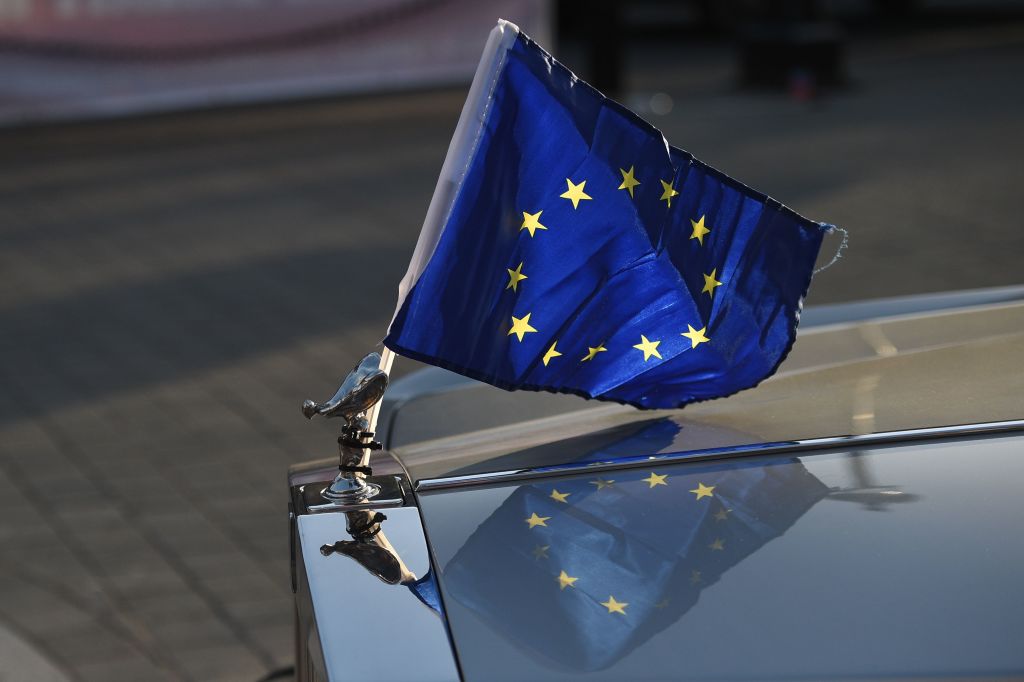At a time when the EU is at its least popular and, worse still, least respected, it is worth reflecting on how the idea for a united Europe developed – and where it went wrong. The Spectator’s reprint last week of Christopher Booker’s 2014 article ‘How the first world war inspired the EU’ is a timely reminder of the real genesis of the EU. Yet it was only after the Second World War amid fear of a renascent Germany, that the concept of an ‘ever-closer union’ became the shibboleth of European construction. It was here that the European project took a mistaken turn.
The First World War led to France and Britain’s economies becoming closely aligned. This partnership involved inter-allied commissions to oversee the distribution of wheat, sugar, coal and credit. And by 1918, the two allies’ economies were knitted closer together than at any time until the 1986 Single European Act.
After the war, the two principal civil servants collaborating in this remarkable endeavour, Jean Monnet and Arthur Salter, hoped to prolong the war-time experience by building on a successful enterprise that had contributed greatly to Allied victory. Theirs was a project founded on experience, results and optimism. But peace-time Franco-British differences meant that this plan was doomed, even if the idea of a federalist Europe lived on in the inter-war years.
The Second World War led to another attempt at making this closer union a reality. In June 1940, the British Cabinet proposed to France the project for an ‘indissoluble union’. Building on military collaboration and the 1939 Anglo-French Coordinating Committee, chaired by Jean Monnet, it was supplemented by the Anglo-French trade agreement and the Anglo-French industrial council in February and March 1940. The American ambassador hailed the planned Franco-British Union ‘the beginning of a United States of Europe’.Following the war, French and British leaders Leon Blum and Ernest Bevin sought to consolidate these ties into a Franco-British union that would include the Benelux countries, Scandinavia and a democratic Germany. The 1948 Treaty of Brussels promised ‘harmonisation’ in economic matters and common social and cultural policies.
But French obsession at this time was, as ever, for greater Anglo-American security pledges against a future revived Germany. When this did not materialise to France’s satisfaction, a space was left for a more theoretical and artificial plan for European integration. This was based on the idea of ensuring that erstwhile enemies France and Germany – at war on three occasions in the previous 75 years – should be at the heart of European construction.
This shift in thinking meant that instead of building on the relationship between two allies, the European project resorted to binding together Europe’s two principal adversaries. It did this to diminish German sovereignty and its capacity to wage war or seek to dominate Europe again. Founded on this pessimism, this pact required ‘ever closer union’ – and with it ever more bureaucracy and supranationalism to achieve its aim.
Its first emanation was the European Coal and Steel Community, managed by a High Authority of experts. Legalism and bureaucratic norms were engineered into the DNA of this new model European construction in the name of European peace. The instigator and guardian of the ever-closer process after 1957 was the inheritor of the High Authority, the European Commission.
Yet it need not have been this way. Doomed to fail because of Hitler’s rise, there was another episode between the two world wars that took a different approach to European integration: the 1929 Briand Plan. Named after the French foreign minister Aristide Briand, who first presented it to the League of Nations Assembly, it sought to bring together 27 European states across the whole continent.Given Britain’s reluctance to bend to French requests for a post-WW1 security alliance, Briand sought to bind France and Germany together at the heart of a pan-European federation. And because the plan came before the Second World War, it was less negative – inspired instead by a light-touch and practical approach to construction – that would have made for a union more in keeping with British sensibilities.
Some of the questions it posed about an integrated Europe even have a contemporary feel. Which countries should be allowed to join other than the 27 European League of Nations states? Should Turkey or the Soviet Union or, for that matter, the British Empire, given its world-wide commitments, be members? Should construction start from a political or an economic premise? What, other than a lowering of European frontier tariffs, should be the areas for collaboration?
Mandated by the League to conduct a survey of potential members’ reactions to the Briand Plan, France discovered a consensus for equality between states and a light touch in the organisation’s institutions. Those institutions were intended to be made up of a European conference assembling all member states; a permanent political committee with a rotating membership; and a secretariat. But there was no place for an institution like today’s European Commission, with its bicephalous executive role of drafting legislation, ensuring its implementation while also acting as a secretariat.
In ditching this approach, it is here that the EU went wrong after the Second World War. For the growing number of states and voters now wishing to reform the EU, there is little doubt that the Commission’s powers will have to be reduced. Those powers were built on the hope set out by French foreign minister Robert Schuman that war between France and Germany should be ‘not merely unthinkable, but materially impossible’. Such a change now requires Berlin and Paris to lead in seeking reform of the Commission. But barring a serious political crisis in the EU, there are too many vested interests now at stake for that to become a political reality, meaning that the EU project looks doomed to continue down the wrong path towards integration.
Professor John Keiger is a former research director in the Department of Politics and International Studies at the University of Cambridge






Comments